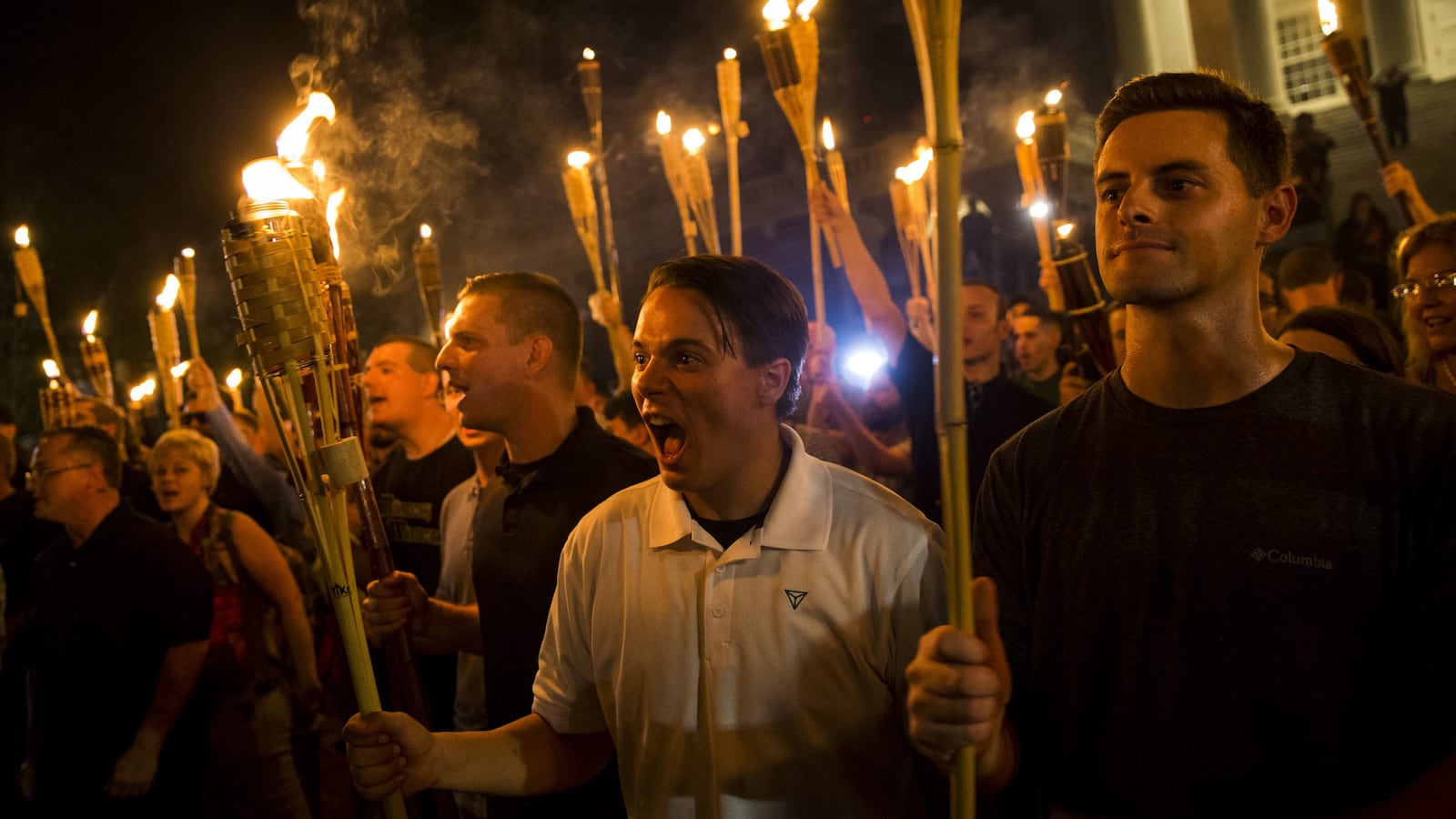This story originally appeared in Right Richter, a newsletter by Will Sommer. Subscribe now to see what's happening in right-wing media from the safety of your inbox.
Nearly two years after Donald Trump said there were “very fine people on both sides” at the Charlottesville white supremacist rally, his supporters are on a new push to rebrand Trump’s gaffe as innocuous remarks.
That movement broke into public view at Tuesday’s House Judiciary Committee hearing on white nationalism. Rep. Louie Gohmert (R-Texas) asked conservative witness Morton Klein, the head of the Zionists of America, to shoot down the notion that Trump had said there were “very fine people on both sides.”
“What are your thoughts about President Trump’s remarks regarding the Charlottesville demonstration, where he’s quoted as saying ‘you also had some very fine people on both sides?’” Gohmert said.
“The media has completely distorted the truth of that episode,” Klein replied.
This is a surprising move, given that there are videos and transcripts of Trump original remarks. But Trump supporters, led by Dilbert creator Scott Adams, have seized on the idea that it’s unfair for the media to say Trump said there were “very fine people on both sides” when referring to the white supremacists.
Adams, who’s rebranded himself as a pro-Trump “persuasion expert,” has focused on remarks Trump made later in the press conference about Confederate statues. They also cite a comment from Trump—which comes several lines after the original “very fine people” statement, and after a series of questions from reporters—in which he said the neo-Nazis and their allies should be “condemned totally.”
For Adams and his followers, Trump wasn’t saying they were “very fine people” amid the Unite the Right ralliers, he was specifically talking about people who were trying to protect Confederate statues and weren’t white nationalists or neo-Nazis. The idea that it was, Adams has written, was “the best persuasion play of the year.”
There are plenty of holes in Adams’s theory. For one thing, he ignores that Trump claimed in the same press conference people in the tiki torch march the night before Unite the Right were “protesting very quietly.”
This idea has rapidly gained traction on the right since the start of the year, appearing in Breitbart, Real Clear Politics, and now, a congressional hearing. Adams’s efforts appear to be paying off — the “debunkers” cheered this week as an article disputing the “both sides” quote rose in the Google search results.






